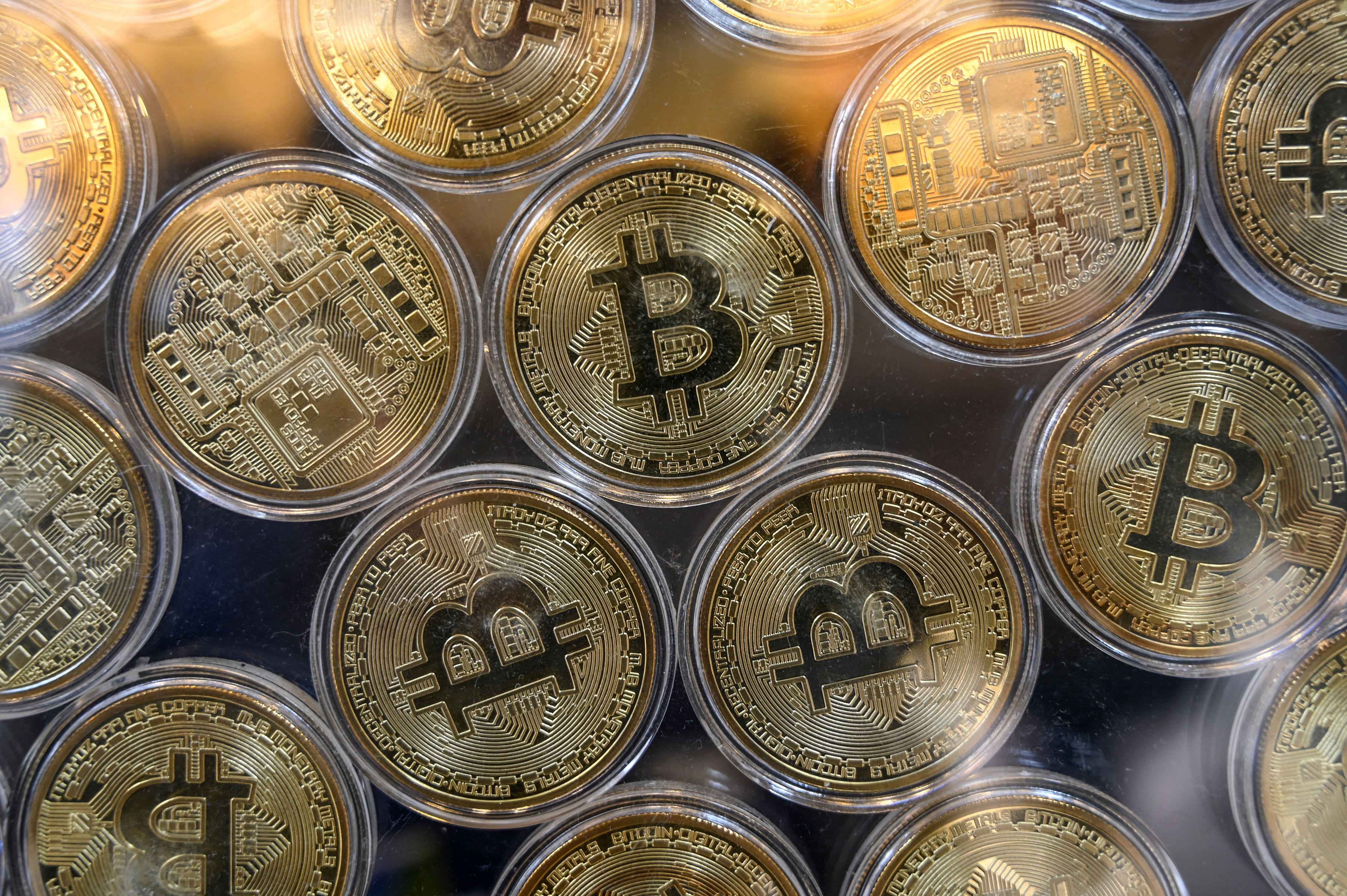Ukraine capitalises on cryptocurrency craze to fundraise for war effort
Ukrainian government says it has received more than $100 million (£75.5 million) in donations to-date

Your support helps us to tell the story
From reproductive rights to climate change to Big Tech, The Independent is on the ground when the story is developing. Whether it's investigating the financials of Elon Musk's pro-Trump PAC or producing our latest documentary, 'The A Word', which shines a light on the American women fighting for reproductive rights, we know how important it is to parse out the facts from the messaging.
At such a critical moment in US history, we need reporters on the ground. Your donation allows us to keep sending journalists to speak to both sides of the story.
The Independent is trusted by Americans across the entire political spectrum. And unlike many other quality news outlets, we choose not to lock Americans out of our reporting and analysis with paywalls. We believe quality journalism should be available to everyone, paid for by those who can afford it.
Your support makes all the difference.Mykhailo Fedorov was just 28-years-old when he was appointed head of Ukraine’s newly-established Ministry of Digital Transformation in 2019 and tasked with leading the country’s paperless revolution.
Little did he know that less than three years down the line, Russia’s invasion of Ukraine would throw the country into disarray, put the banking system at risk, and prompt the young minister to call for the immediate legalisation of cryptocurrency.
Since then, more than $100 million (£75.5 million) worth of crypto has been raised, according to Mr Fedorov’s ministry. And what was once illegal currency has now become a vital asset in Ukraine’s resistance against Russia.
What started off as a call on social media for crypto donations quickly became a sleek, user-friendly website with a hashtag, a catchy headline – ‘Help Ukraine with crypto, don’t leave us alone with the enemy’ – and links to send different coins, or transfer conventional cash, to the fundraising account of the National Bank of Ukraine.
In an overwhelming global show of support, donations poured into the state crypto wallet through several digital currencies, including Bitcoin, Ethereum, Tether and even the oft-derided Dogecoin.
London-based blockchain analysis provider Elliptic said the donations included a single transaction worth $1.86 million that appeared “to have come from the proceeds of the sale of NFTs [non-fungible token] created by Julian Assange and the anonymous digital artist, investor, and programmer Pak”.
The group also warned it had identified fraudulent crypto fundraising scams and warned that scammers were likely taking advantage of the situation and “tricking unsuspecting users wishing to donate to Ukrainian causes”.
But this has not stopped the funds from pouring in, and according to the Ministry of Digital Transformation, they have helped to support humanitarian aid programmes and Ukraine’s armed forces as they continue to battle Russian forces with the conflict about to enter its second month.
A portion of the donations will remain digital, while others are being converted to fiat (traditional) money and transferred to the National Bank of Ukraine, according to the ministry.
“Every helmet, bulletproof vest and night vision device save the lives of Ukrainian soldiers,” Mr Fedorov - who is also Vice Prime Minister - wrote on the ministry’s website. “Thus, we must continue to support our defenders. Thanks so much to everyone from the crypto community for supporting Ukraine!”

Less than six months ago, Ukrainian president Volodymyr Zelensky vetoed a law legalising crypto that had been passed by parliament - arguing that setting up a new government agency for cryptocurrency was too costly.
But drastic times call for drastic measures, and on March 16, the Ministry of Digital Transformation’s deputy minister Alex Bornyakov announced that Mr Zelensky had signed the legislation on digital assets.
“Now crypto is legalized in Ukraine. Thank you, President Zelensky for the support. We believe that crypto industry offers new economic opportunities. We will do our best to bring the bright new future closer as soon as possible,” Mr Bornyakov wrote on Twitter.
But it’s not just the state that is set to benefit from a move towards cryptocurrency. Ukrainians who have been looking for alternative banking systems, particularly during war, are likely to welcome the legalisation of digital currency.
“During conflict situations like these banks and services will be disrupted, they will not be operating as usual,” said Abdurrahman Bapir, the founder of Kurdcoin, a crypto exchange in the Kurdistan Region and Iraq.
Mr Bapir witnessed first-hand the need for cryptocurrency across Iraq and Kurdistan when Isis rose to power in 2014, catapulting the country into war.
“A lot of people who had money in the banks had problems because they could not withdraw money,” he told The Independent.
“It became all too clear that people could not trust the banks with their cash. Crypto, because people store it in their own wallet and their own phone, is a more trusted way of storing value than if you put it in a bank account you don’t have control over.”
However, earlier this month Ukraine’s central bank governor Kyrylo Shevchenko reassured the public during a briefing that the country’s banking and financial systems remained functional.
The National Bank of Ukraine, he said, was “doing everything necessary to ensure the continuity of both non-cash and cash payments and the smooth functioning of the banking system of the state under martial law".
For Ukraine’s crypto community the best way forward for the economy is digital and if implemented properly it will last long after the war with Russia ends.
"When we win the war, we will rebuild Ukraine using blockchain technology. All of us were helped by crypto," Michael Chobanian, the founder of Ukrainian crypto exchange Kuna, told AFP.



Join our commenting forum
Join thought-provoking conversations, follow other Independent readers and see their replies
Comments